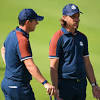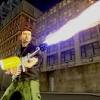Fact-checking 'Midway': How accurate is Roland Emmerich's WWII movie starring Nick Jonas?


These American World War II heroes might seem too awe-inspiring to be true, portrayed by actors such asNick Jonas,Darren Criss and Ed Skrein in "Midway."
But their exploits ring true in the pivotal battle that took Japan off the naval offensive after Pearl Harbor,even though they've beenHollywood-ized by director Roland Emmerichin the drama opening in theaters Friday before Veterans Day.
"The battle itself was so remarkable, if you made anything up, you were really doing a disservice to these men'ssacrifices," says screenwriter Wes Tooke. "There’s no character beat here that didn’t actually happen."
Retired U.S. Navy Rear Adm. Samuel J. Cox, director of the Naval History and Heritage Command and the Navy's liaison for the film,says the movie is more accurate than 1976's "Midway" starring Charlton Heston and Henry Fonda. Cox ultimately gave the current telling a strong thumbs up.

"The people are real, what they did is real. This movie captures the courage and sacrifice and stakes involved in the battle," says Cox. "But for those who know about the Battle of Midway, there are plenty of things that aren’t quite right."
Here's a rundown on the accuracy:

Nick Jonas took on the mustache and Long Island, New York, accent to portray the real-life Bruno Gaido, with no need to amp up his role in the lead-up to the Battle of Midway.When a badlydamaged Japanese plane attempted to crash-land onthe aircraft carrier Enterprise, Gaido sprinted across the deck, jumped into a parked bomber, swiveled the .30 caliber machine guns and opened fire.
The relentless barrageredirected the plane from a direct hit on the carrier. But the suicide mission spun into Gaido's plane, dramatically cutting it in two, somehownot injuring him.
"That's one of those movie moments where you might go, that’s a Hollywood whopper," says Cox. "But it'sactually true."
Adds Tooke: "In a world full ofsuperhero movies, there was a real superhero."
Gaido was spot-promoted by Vice Adm. William "Bull"Halsey (Dennis Quaid), who witnessed the jaw-dropping spectacle. What isn't shown onscreen: Gaido hidafter shooting the plane down,afraid he was going to get in trouble for leaving his battle station. "They had to hunt him down and bring him to Halsey," says Cox.
As depicted, Gaido was later shot down, taken prisoner by the Japanese with his pilotand tragically executed.

The danger facedby the first wave of torpedo bombers, and the Torpedo Squadron 6led by decorated pilot Lt. Cmdr. Eugene Lindsey (Darren Criss),was real, says Cox. Nine of the squadron's 14 planes were shot down by the Japanese.
"They went in first and the Japanese shot them down," says Cox. "The film accurately depictsthe sacrifice of thesetorpedo bombers, who made the dive-bombing attack that followed possible."
Criss'Lindsey is showndropping a torpedo, which misses its target, before he'sshot down. "Our torpedoes during that part of the war were notoriously unreliable. And that’s depicted," says Cox.

Cox was pleased with the portrayalof top pilot Lt. Dick Best (Ed Skrein), despite some script embellishment involvinghis combative attitude and hot-dog pilot's moves. For example, Best practicing a no-flaps landing on theaircraft carrier was "Top Gun" fiction, Cox says.
"Had he actually done that, he would have had his wings pulled and been thrown out as a naval aviator," says Cox."There are some things true, othersexaggerated."
Best's heroics in the battle areimpressive and accurate. In the battle confusion, most of thedive-bombing planes zeroed in on the Japanese carrier Kaga, sinking it. But Best pulled off with two other dive bombers to successfully sink the Akagi, with his bomb proving fatal.
"Had they not peeled off to hit that carrier, eventually sinking it, the course of the battle would have been very different," says Cox.
Despite a bad oxygen mix which severely injured his lungs, Best returned to the air to help sink his second Japanese carrier that day, the Hiryu,which had survived the morning attacks. The dramatic scenes of Skrein's Bestdive-bombing amidanti-aircraft fire werevisually stunning, Cox says, but in reality, only one plane was shot down by thatfire; Japanese fighter pilots inflictedthe most damage.
As seen onscreen, Best, who died in 2001, neverflew again because oflung damage from his heroic flights.
"If I made up this story, it would be melodrama," says Tooke. "It couldn’t have happened. But it did."

Cox was especially excited to see an accuratedepiction of American code breakers, lead by Joseph Rochefort (Brennan Brown) andNaval Intelligence officer Edwin Layton (Patrick Wilson). The group determined the time andlocation of the Japanese surprise attack, even the direction from which the strike would come, with stunning accuracy.
Rochefort did wear a smokingjacket and slippersin the code breakers'chillyoffice, Cox says, though mostly for warmth.
"They did have a sign in their space saying, 'Youdon’t have to be crazy, but it helps if you work here.' They were a unique group of officers," says Cox.



 United States
United States Argentina
Argentina  Australia
Australia  Austria
Austria  Brazil
Brazil  Canada
Canada  Chile
Chile  Czechia
Czechia  France
France  Germany
Germany  Greece
Greece  Italy
Italy  Mexico
Mexico  New Zealand
New Zealand  Nigeria
Nigeria  Norway
Norway  Poland
Poland  Portugal
Portugal  Sweden
Sweden  Switzerland
Switzerland  United Kingdom
United Kingdom 
























